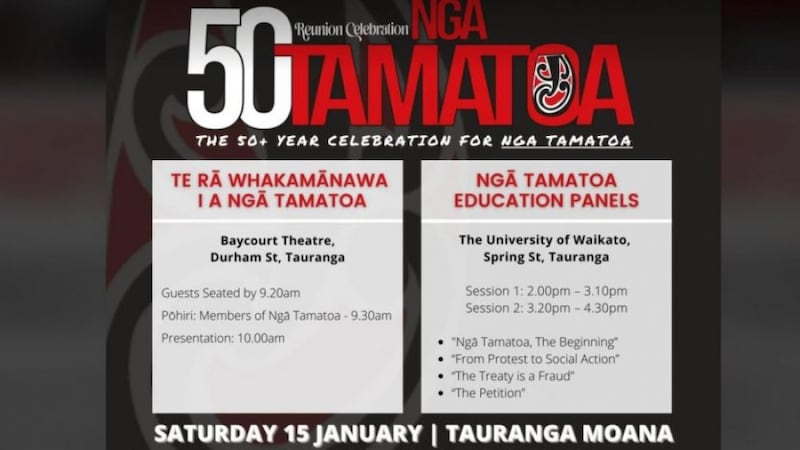A reunion is in place for Ngā Tamatoa members in Tauranga this month where they’ll be reminiscing on their 52-year-old legacy of combating threats to Māori language and culture, demanding te reo Māori be taught in schools.
Thousands gathered in protest at the stairs of parliament in 1972 to present a petition in an effort to revitalise the language. Te Huinga Rangatahi (New Zealand Māori Students Association) and Ngā Tama Toa (The Young Warriors) led the protests and Hana Te Hemara Jackson, a founding member, handed over the petition that had over 30,000 signatures.
“In my mind, the women-led everything,” says Ngā Tamatoa member Taitimu Maipi.
“We were there, but when you have a look at those who made the changes from the top of the north island down to the south, and the leadership from one tribe to another, they were all women,” he recalls.
Formed in 1970, Ngā Tamatoa fought for better recognition of kaupapa Māori. Based in Auckland and Wellington, many of its then members were city-living Māori concerned about their estrangement from their hau kāinga.
“We were just hoping we could get the Māori language movement started, but to get it started you had to have a commitment at home and if you look around the country now you have Hoani Waititi, Rākaumangamanga, the kura in Rotorua, it’s starting to come up but I don’t think it ( te reo Māori) is as strong as it should be, because fluent speakers aren’t going into the teaching profession,” says Maipi.
It wasn’t just te reo Māori being taught in schools that they pursued, they wanted equal representation for Māori in parliament, confiscated land returned, and Crown ratification of Te Tiriti o Waitangi.
“If you think about it, back then, we were sitting there making a lot of noise but it was the women who were leading the charge. Up north there was Hilda Harawira, down here in Waikato Eva Rickard, the men were alright but everything was led by the women. Even today there are a lot of men making some changes but you look at who’s making a move behind the scenes, it’s still the women,” says Maipi.
By September 14 1972 Māori Language Day was declared and that later became Māori Language Week. On January 15 a reunion will be held in Tauranga to celebrate the 52nd anniversary of Ngā Tamatoa and Maipi says it’s up to the next generation now to continue the legacy.
“I think just getting together and seeing who’s still around, who’s making changes is what I’m looking forward to, but I'm hoping what comes out is that we instil to the young ones that they have to pick up the mantle and carry it for us.”

